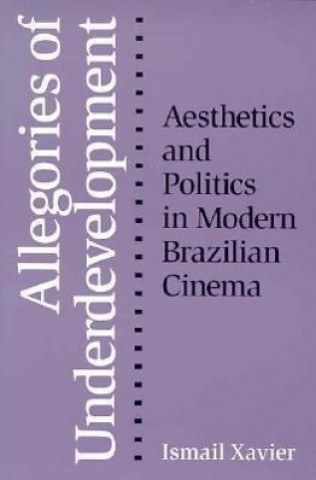
Livrare
Consilier de cumpărături





Nu se pretează? Nu contează! La noi puteți returna bunurile în 30 de zile
 Voucher cadou
orice valoare
Voucher cadou
orice valoare
Cu un voucher cadou nu veți da greș. În schimbul voucherului, destinatarul își poate alege orice din oferta noastră.
Allegories Of Underdevelopment
 engleză
engleză
 79 b
79 b
30 de zile pentru retur bunuri
Ar putea de asemenea, să te intereseze


Examines the centrality of Cinema Novo to filmmaking in Brazil."A camera in the hand and ideas in the head" was the primary axiom of the young originators of Brazil's Cinema Novo. In Allegories of Underdevelopment, Ismail Xavier argues that this movement of the 1960s and early 1970s served to represent a nation undergoing a political and social transformation into modernity.Its best-known voice, filmmaker Glauber Rocha claimed that Cinema Novo was driven by an "aesthetics of hunger". This scarcity of means demanded new cinematic approaches that eventually gave rise to a legitimate and unique Third World cinema. Xavier considers a range of revolutionary films -- from the masterworks of Rocha to the groundbreaking experiments of Julio Bressane, Rogerio Sganzerla, Andrea Tonacci and Arthur Omar.Focusing on each filmmaker's use of narrative allegories for the "conservative modernization" Brazil and other nations underwent in the 1960s and 1970s, Xavier examines the way Cinema Novo transformed Brazil's cultural memory. Among the films he discusses are Black God, White Devil, Land in Anguish, Red Light Bandit, Macunaima, Antonio das Mortes, The Angel Is Born, and Killed the Family and Went to the Movies.
Informații despre carte
 engleză
engleză
Categorii




 Cum să cumpăr
Cum să cumpăr





























